wikiHow is a “wiki,” similar to Wikipedia, which means that many of our articles are co-written by multiple authors. To create this article, 15 people, some anonymous, worked to edit and improve it over time.
There are 8 references cited in this article, which can be found at the bottom of the page.
This article has been viewed 394,680 times.
Learn more...
Learning how to count calories is a great way to help you achieve a healthy diet. While most food labels list the number of calories contained in their products, they oftentimes do not list the breakdown of which specific nutrients those calories come from. By understanding the difference between calories and grams, and learning the conversion rate, you can easily calculate how many calories are in specific nutrients.
Steps
Converting Fat Grams to Calories
-
1Look at the nutrition label. Most food labels will list how many grams of fat there are for each serving of that specific product. This is how you will calculate the calories.[1]
-
2Multiply the fat grams by nine. Every gram of fat contains nine calories.[2] To figure out how many calories there are in the fat content, simply multiple the fat grams by nine.[3]
- For example, if there are ten grams of fat, you would multiple ten grams of fat by nine calories, for a total of 90 calories. This is how many calories there are in the fat grams.
Advertisement -
3Calculate how many calories there are in the entire product. To figure out how many total calories there are in the fat content of a product, multiply the original number you received before, by the amount of servings there are on the label.[4]
- If a label states there are three servings, you would then multiply 90 by three, for a total of 270 calories.
Converting Grams of Carbohydrates and Proteins to Calories
-
1Know that a carbohydrate is an organic compound. Carbohydrates are made of carbon, hydrogen, and oxygen. They always contain calories (4 per gram), but calories do not automatically mean there are carbohydrates, because calories are in other macro-nutrients.[5]
-
2Check the nutrition label. You will see how many grams of carbohydrates there are per serving. Carbohydrates have four calories per gram. Multiply the number of carbohydrates by four to figure out how many calories there are.[6]
- For example, if a product had nine grams of carbohydrates, you would use the equation (9 x 4) to get a total of 36 calories. You would use four as your multiplier because there are four calories in every one gram of carbohydrate.
-
3Find out the number of calories that come from protein. Proteins are also listed in grams on food labels. Just like carbohydrates, protein carries four calories per gram. Again, multiply the number of protein grams by four to receive the number of calories.[7]
Understanding Grams vs. Calories
-
1Realize the difference between a gram and a calorie. A gram is a metric unit of weight that is equal to one thousandth of a kilogram.[8] A calorie is a unit of energy that people receive from food. One pound of body fat is equal to about 3500 calories.
- A gram and a calorie are different units of measure that can't be converted into one another.[9]
-
2Find out for which energy source you want to measure the calories. The quantity of calories per gram of food is dependent upon its ratio of macro-nutrients. The human body can derive energy (employ calories) from three main macro-nutrients: carbohydrates, fats, and proteins.[10]
- You can't weigh food and convert the grams into calories. You have to know how many calories there are in a specific type of macro-nutrient gram to calculate the total calories in it.
-
3Multiply the number of grams by the conversion number. Look on the label of the food your want to calculate the calories for. Each nutrient will be listed in grams. Once you find the one you are looking for, you can multiply that number by the number of calories that specific nutrient has in each gram.[11]
Community Q&A
-
QuestionHow many calories are in 71 grams of sugar?
 PurplecakecarolineCommunity AnswerThere are 274.77 calories in 71 grams of sugar. There are 3.87 calories in one gram of sugar, so to calculate the number of calories in 71 grams of sugar, multiply 3.87 and 71.
PurplecakecarolineCommunity AnswerThere are 274.77 calories in 71 grams of sugar. There are 3.87 calories in one gram of sugar, so to calculate the number of calories in 71 grams of sugar, multiply 3.87 and 71. -
QuestionHow do I convert sugar grams into calories?
 ScintillacatelepsyCommunity AnswerOne gram of sugar contains 3.87 calories, so multiply the grams of sugar by 3.87 (or just 4 if you're not looking to be that precise).
ScintillacatelepsyCommunity AnswerOne gram of sugar contains 3.87 calories, so multiply the grams of sugar by 3.87 (or just 4 if you're not looking to be that precise). -
QuestionHow do I find out the amount of calories in a package of food?
 Community AnswerMost packaged foods have nutrition facts on them. Look for a white rectangle with black text on it. Usually it will be on the back of a package of food or the side, if it is a box. There is a lot of information but calories is usually near the top.
Community AnswerMost packaged foods have nutrition facts on them. Look for a white rectangle with black text on it. Usually it will be on the back of a package of food or the side, if it is a box. There is a lot of information but calories is usually near the top.
References
- ↑ https://www.eatright.org/food/nutrition/nutrition-facts-and-food-labels/the-basics-of-the-nutrition-facts-label
- ↑ https://my.clevelandclinic.org/health/articles/4182-fat-and-calories
- ↑ https://www.nal.usda.gov/fnic/how-many-calories-are-one-gram-fat-carbohydrate-or-protein
- ↑ https://www.fda.gov/food/new-nutrition-facts-label/how-understand-and-use-nutrition-facts-label
- ↑ https://bio.libretexts.org/Bookshelves/Introductory_and_General_Biology/Book%3A_Introductory_Biology_(CK-12)/01%3A_Introduction_to_Biology/1.10%3A_Carbohydrates
- ↑ https://www.nal.usda.gov/fnic/how-many-calories-are-one-gram-fat-carbohydrate-or-protein
- ↑ https://www.nal.usda.gov/fnic/how-many-calories-are-one-gram-fat-carbohydrate-or-protein
- ↑ http://www.convertunits.com/from/gram/to/calorie
- ↑ https://www.aps.org/policy/reports/popa-reports/energy/units.cfm
About This Article
If you want to convert grams to calories, remember that there are 9 calories in a gram of fat, and 4 calories in a gram of carbohydrates or protein. For example if a food has 10 grams of fat, 14 grams of carbohydrates, and 3 grams of protein, then it would have 90 calories from fat, 56 from carbs, and 12 from protein. Read more to learn why calories and grams have such an odd relationship.
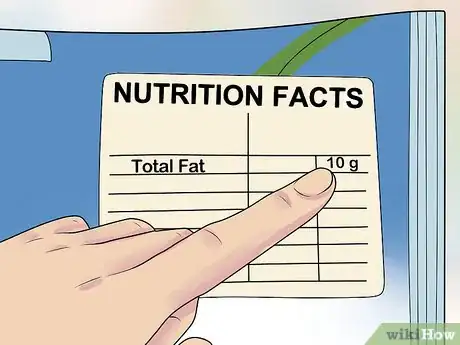
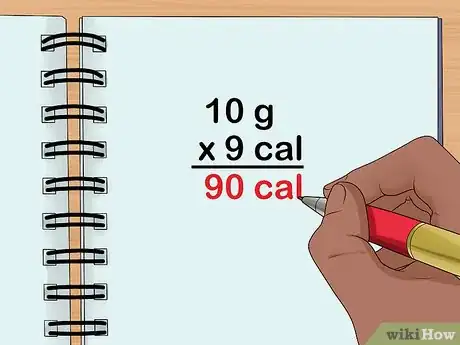
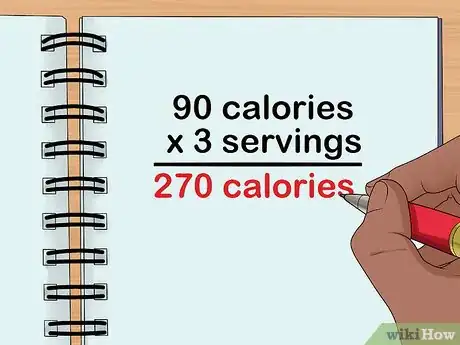
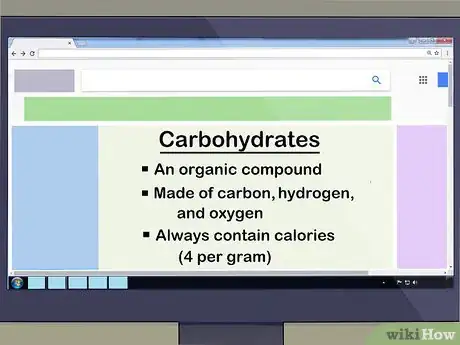

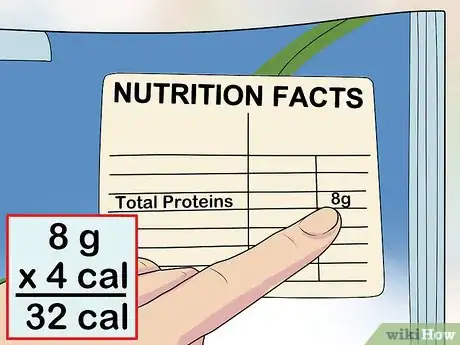
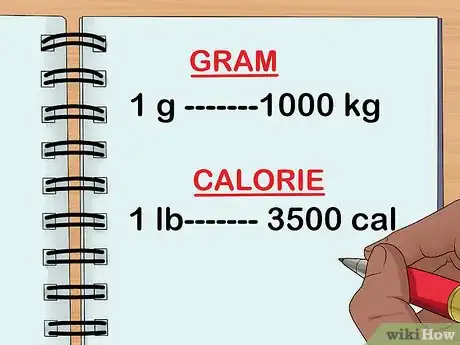
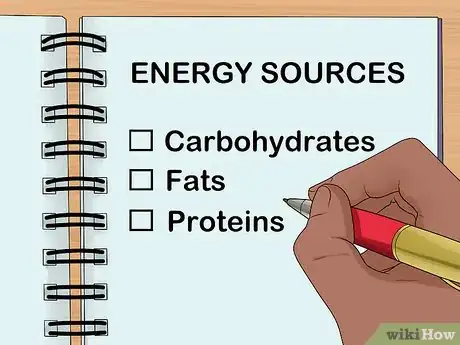
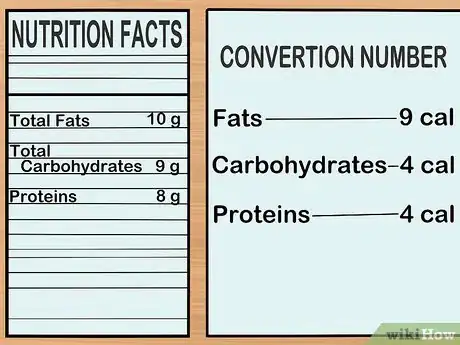
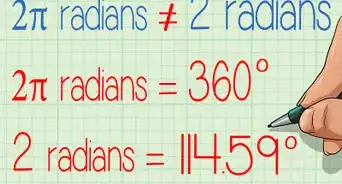
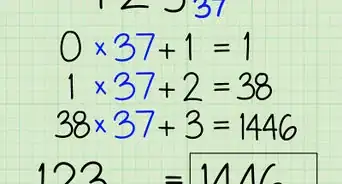
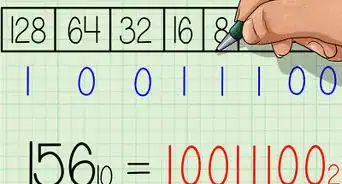
-to-Grams-(g)-Step-8-Version-5.webp)
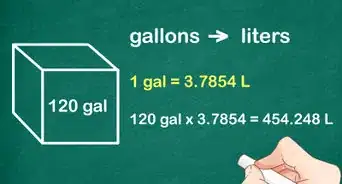
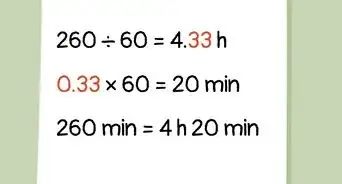
-to-Fahrenheit-(°F)-Step-6-Version-2.webp)
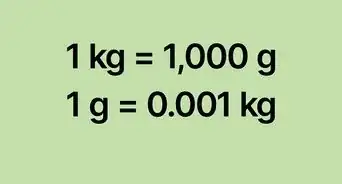
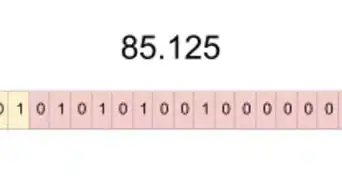
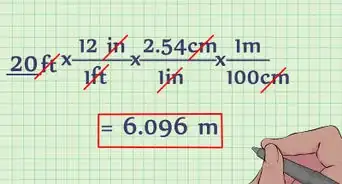

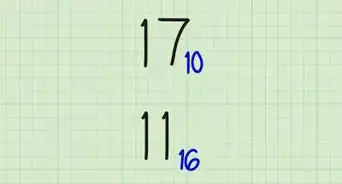
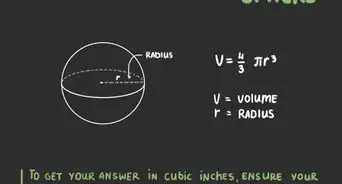










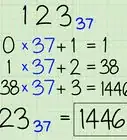
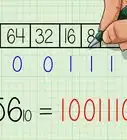
-to-Grams-(g)-Step-8-Version-5.webp)



































Medical Disclaimer
The content of this article is not intended to be a substitute for professional medical advice, examination, diagnosis, or treatment. You should always contact your doctor or other qualified healthcare professional before starting, changing, or stopping any kind of health treatment.
Read More...